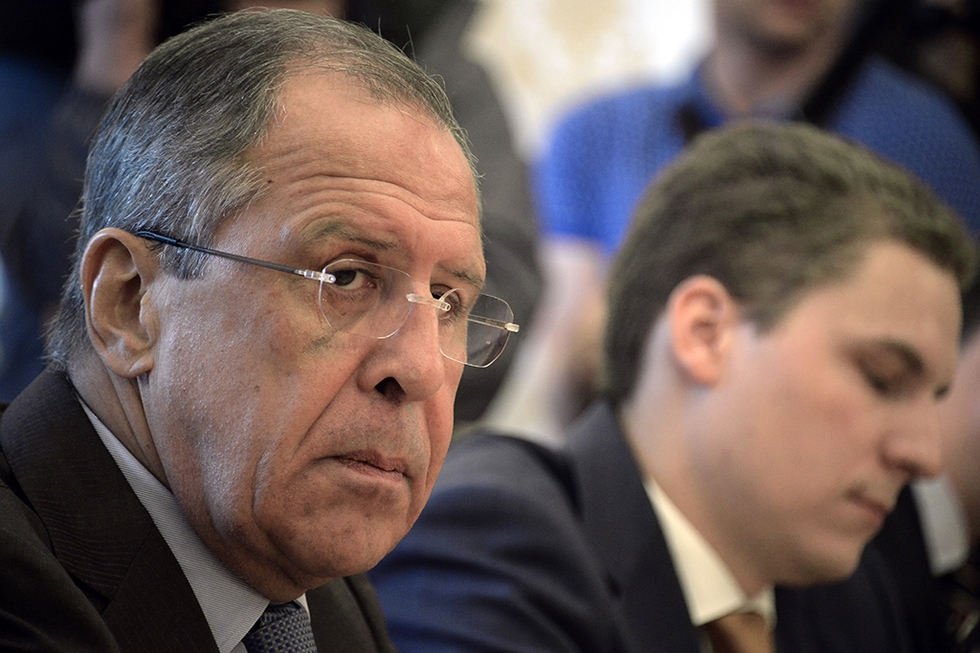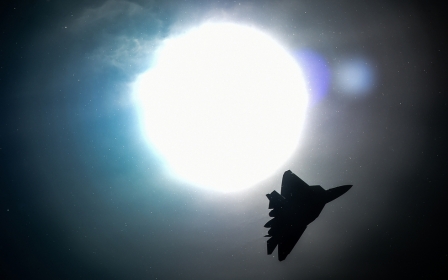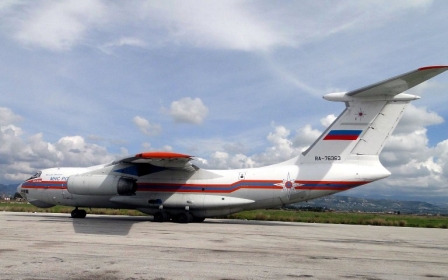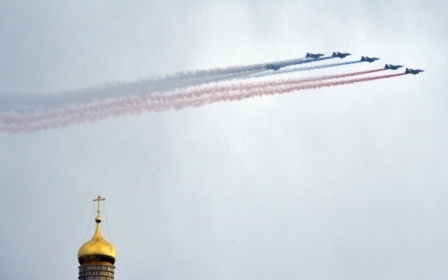Russia sends anti-aircraft missiles to Assad: Report

Russia is reportedly sending anti-aircraft missiles to the Syrian government, as the Russian foreign minister called for military cooperation with the US.
"This system is the advanced version used by Russia and it's meant to be operated by Russians in Syria," a Western diplomat who is regularly briefed on US, Israeli and other intelligence assessments, told Reuters.
He added that it was the not the first time that Russia had sent the SA-22 system, known as Pantir-S1 in Russia, to Syria.
Reports of the incoming weaponry came as Russian Foreign Minister Sergei Lavrov said on Friday that the US would risk “unintended incidents” if it chose not to engage in military-to-military cooperation with his country.
"We are always in favour of military people talking to each other in a professional way. They understand each other very well," Lavrov said at a news conference during which he also blamed the US for cutting off cooperation with Russia following the crisis in Ukraine which began last year.
"If, as John Kerry has said many times, the United States wants those channels frozen, then be our guest."
Some commentators questioned why Russia had given Syria anti-aircraft weaponry if its primary target was the Islamic State militant group which does not have an air force:
Three Lebanese sources knowledgeable about the military situation in Syria told Reuters that a small number of Russian troops were now participating in military operations in the country, supporting the Assad government against rebels.
"The Russians are no longer just advisors," one of the sources said. "The Russians have decided to join the war against terrorism."
"They have started in small numbers, but the bigger force did not yet take part," another of the sources told Reuters.
- See more at: http://www.middleeasteye.net/news/russian-military-buildup-continues-syria-us-officials-1080292707#sthash.qIYhs7YK.dpufThree Lebanese sources knowledgeable with the military situation in Syria told Reuters on Thursday that a small number of Russian troops were now involved in military operations in the country, supporting the Assad government against rebels.
"The Russians are no longer just advisors," one of the sources reportedly said. "The Russians have decided to join the war against terrorism."
"They have started in small numbers, but the bigger force did not yet take part," said another source.
A senior Israeli defence official told reporters on Thursday that Israel was in touch with Russia about arms shipments and warned against any ending up in the hands of Hezbollah.
"We have open relations with the Russians who have come to save Assad in the civil war," he said, according to Haaretz.
"Along with this, we will not allow our sovereignty to be compromised or the transfer of advanced or chemical weapons (to Hezbollah). We are following the developments and keeping open channels with Moscow."
Longterm allies
Russia has been a staunch Syrian ally for several decades and maintains its only Mediterranean naval base at Tartous on the Syrian coast.
President Vladimir Putin has long maintained that any peace process in Syria must involve Syrian President Bashar al-Assad and has repeatedly resisted calls for him to step down.
British foreign secretary Philip Hammond raised eyebrows on Wednesday when he suggested that Assad could remain in power for a six month transitional period.
“We are not saying Assad and all his cronies have to go on day one,” Hammond said. “What I am not prepared to discuss is what I understand to be the Russian and Iranian position, that we need to move to elections in Syria and it will be for the Syrian people to decide in those elections whether Assad should remain as their president."
He added, however, that Assad could not remain the longterm.
“That is not an acceptable position," he said. "The international community cannot, in my view, facilitate and oversee a set of elections in which somebody guilty of crimes on the scale that Assad has committed is able to run for office. That has to be clear. He cannot be part of Syria’s future.”
White House Deputy Press Secretary Eric Schultz on Wednesday said the US would welcome any Russian contributions to the fight against IS, but said support for Assad was "unconscionable".
New MEE newsletter: Jerusalem Dispatch
Sign up to get the latest insights and analysis on Israel-Palestine, alongside Turkey Unpacked and other MEE newsletters
Middle East Eye delivers independent and unrivalled coverage and analysis of the Middle East, North Africa and beyond. To learn more about republishing this content and the associated fees, please fill out this form. More about MEE can be found here.




